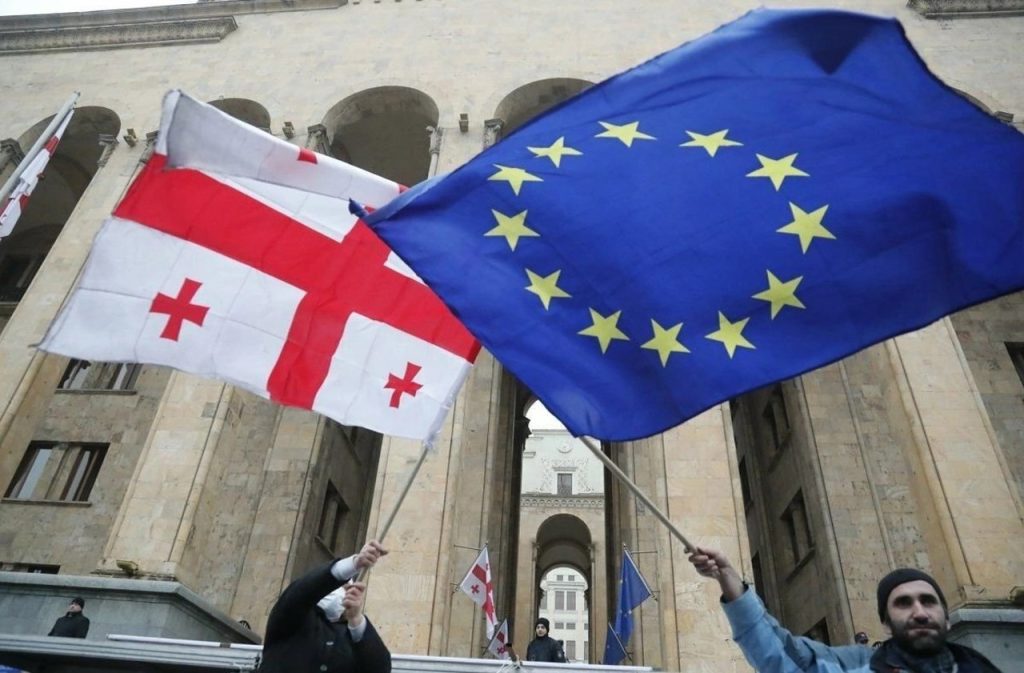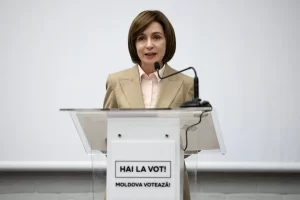
Moldova and Georgia are at a crossroads, with pivotal votes scheduled that will shape their future in Europe. Both nations, former Soviet republics, have been significantly affected by Russia’s ongoing war in Ukraine, and their electoral decisions could define their trajectories toward European integration.
Georgians will cast their votes on Saturday in a parliamentary election that will determine the country’s direction regarding the European Union. The ruling party, Georgian Dream, faces accusations of democratic erosion, prompting concerns about the future of the nation’s European ambitions. Just six days prior, Moldovans participated in a referendum that sought to enshrine EU accession in their constitution, alongside a presidential election. That vote, which took place on October 20, resulted in a narrow victory for the pro-EU faction, with 50.38% supporting the measure against 49.62% opposing it.
The referendum’s outcome surprised many, especially given pre-vote surveys suggesting a solid backing of around 63%. Moldova’s President Maia Sandu criticized the slim margin, attributing it to foreign interference, and declared that pro-EU forces had won a preliminary battle in a challenging fight ahead. She specifically highlighted allegations of vote-buying orchestrated by fugitive businessman Ilan Shor, who reportedly transferred $39 million into Moldovan bank accounts to sway the vote.
Despite the Kremlin’s denial of involvement, suspicions of Russian disinformation campaigns had circulated before the referendum. Moldova, with a population of just over 2.5 million, also has around 1.2 million citizens living abroad. Maia Sandu, a staunch advocate for European integration, became president in 2020 and won the first round of the presidential election with 42% of the vote. However, this was insufficient to avoid a runoff, which will occur on November 3, where she will face Alexander Stoianoglo, the former prosecutor general who garnered about 26%.

Stoianoglo’s unexpected candidacy, supported by the pro-Russian Party of Socialists, complicates Sandu’s re-election prospects. Lower than expected voter turnout in the initial election further complicates the landscape. Even if Sandu triumphs in the runoff, her party may face challenges in the parliamentary elections scheduled for July, as it may need to collaborate with less pro-European forces to form a government.
Ilan Shor, despite residing in Russia, has cast a long shadow over the elections. After fleeing in 2019 following a fraud conviction, he is alleged to have attempted to bribe voters to skew the referendum results. Moldova’s authorities have linked him to various disinformation and voter manipulation schemes, asserting that the police had evidence of extensive bribery leading up to the vote.
Meanwhile, the stakes are equally high for Georgia, where voters will also weigh their future on Saturday. With a population of 3.7 million, Georgia is facing a polarized political landscape. The ruling Georgian Dream party is accused of adopting authoritarian measures reminiscent of Russia’s governance, raising fears about the nation’s commitment to its European path. Opposition parties, alongside the pro-Western president, are framing the election as a crucial choice between aligning with Europe or succumbing to Russian influence.

Last December, Georgians celebrated receiving official EU candidate status, enjoying significant public support. However, this momentum was halted by the EU’s suspension of the accession process following the introduction of a controversial “foreign influence law” that ignited widespread protests. This legislation requires media and NGOs receiving foreign funding to register as foreign agents, drawing harsh criticism from both the EU and the US.
As the election approaches, Georgian Dream maintains it is still committed to EU membership, pledging a reset in relations with the West. However, their history of governance raises concerns about future political freedoms. The opposition, while fragmented, is coalescing around a common goal of reversing the “Russia-style” laws and pushing for genuine European integration.
Observers have pointed out that both countries are experiencing a rise in Russian-backed disinformation campaigns aimed at destabilizing their democratic processes. With Russian military presence in the breakaway regions of Transnistria in Moldova and Abkhazia and South Ossetia in Georgia, the geopolitical stakes are extremely high.
The outcomes of these elections and referendums will not only determine Moldova and Georgia’s immediate political landscapes but also set the tone for their long-term aspirations for European integration amid the looming shadow of Russian influence.





